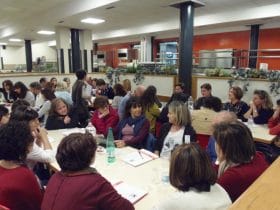
Nov 5, 2016 | Focolare Worldwide, Senza categoria
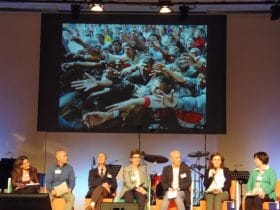 Hungary had been invaded by Soviet troops following the 1956 uprising. In response to the appeal of Pope Pius XII, Chiara Lubich wrote a letter that became the Magna Carta of a new calling in the Focolare Movement: the Volunteers of God, men and women who live the spirituality of unity and are especially committed to bringing the presence of God into society. Last October, a total of 1,840 participants from the wale of Italy, came together in Castel Gandolfo, Rome. “There’s a lot of desire to step up for our country, to overcome the fragmentation and to create a network of best practices that can provide mutual support. Now, it’s more necessary than ever before to give an intergenerational concrete response to the challenges of those that suffer in society.” This was the comment of one of the young participants that summarizes the three days of intense work. Focolare Movement president, Maria Voce, sent a message at the opening of the meeting in which she encouraged them to bear witness to the charism of unity in its more concrete expressions, keeping their gaze fixed on Jesus’s prayer “that all may be one” (Jn 17:21). The meeting continued with a series of reflections and testimonies on the central theme for the entire Movement this year: “Jesus Forsaken:
Hungary had been invaded by Soviet troops following the 1956 uprising. In response to the appeal of Pope Pius XII, Chiara Lubich wrote a letter that became the Magna Carta of a new calling in the Focolare Movement: the Volunteers of God, men and women who live the spirituality of unity and are especially committed to bringing the presence of God into society. Last October, a total of 1,840 participants from the wale of Italy, came together in Castel Gandolfo, Rome. “There’s a lot of desire to step up for our country, to overcome the fragmentation and to create a network of best practices that can provide mutual support. Now, it’s more necessary than ever before to give an intergenerational concrete response to the challenges of those that suffer in society.” This was the comment of one of the young participants that summarizes the three days of intense work. Focolare Movement president, Maria Voce, sent a message at the opening of the meeting in which she encouraged them to bear witness to the charism of unity in its more concrete expressions, keeping their gaze fixed on Jesus’s prayer “that all may be one” (Jn 17:21). The meeting continued with a series of reflections and testimonies on the central theme for the entire Movement this year: “Jesus Forsaken: 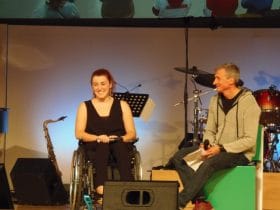 God’s aperture on the world, and the world’s aperture on God.” The testimonies were very moving. The voices of Pina and Tanina trembled as they told about their daily acts of heroism welcoming the thousands of refugees that have disembarked at the small island of Lampedusa in recent years: “We feel that these African brothers and sisters are our own until the time comes when we have to let them go. When they leave and disperse to many parts of the world we’re filled with emotions and concern for what still awaits them.” Journalist Riccardo Balaarm told how the painful experience of his disabled son led to a commitment among the National Paralympic Swimmers to promote the testimony of free swimmer and silver medallist Arjola Trimi from Rio, Brazil.
God’s aperture on the world, and the world’s aperture on God.” The testimonies were very moving. The voices of Pina and Tanina trembled as they told about their daily acts of heroism welcoming the thousands of refugees that have disembarked at the small island of Lampedusa in recent years: “We feel that these African brothers and sisters are our own until the time comes when we have to let them go. When they leave and disperse to many parts of the world we’re filled with emotions and concern for what still awaits them.” Journalist Riccardo Balaarm told how the painful experience of his disabled son led to a commitment among the National Paralympic Swimmers to promote the testimony of free swimmer and silver medallist Arjola Trimi from Rio, Brazil.  In the afternoons 150 groups discussed 35 topics: formation, social and political involvement; economy, health and ecology; art etc. These are all things that the Volunteers are called to deal with in their daily lives, through which they strive to fulfil their vocation as “first Christians of the twentieth century” as Chiara Lubich liked to call them: lay men and women that live the Gospel with the same fervour of the first Christians, committed to spending their lives for the building of a united world (Jn 17:21). A solemn moment was the signing of the act of initialization of the promotion of the Canonization Process for Volunteer Domenico Mangano from Viterbo, in the presence of Fr Andrea De Matteis, Vicar and Chancellor of the Diocese of Albano. https://youtu.be/EDCfdVUGa6s
In the afternoons 150 groups discussed 35 topics: formation, social and political involvement; economy, health and ecology; art etc. These are all things that the Volunteers are called to deal with in their daily lives, through which they strive to fulfil their vocation as “first Christians of the twentieth century” as Chiara Lubich liked to call them: lay men and women that live the Gospel with the same fervour of the first Christians, committed to spending their lives for the building of a united world (Jn 17:21). A solemn moment was the signing of the act of initialization of the promotion of the Canonization Process for Volunteer Domenico Mangano from Viterbo, in the presence of Fr Andrea De Matteis, Vicar and Chancellor of the Diocese of Albano. https://youtu.be/EDCfdVUGa6s
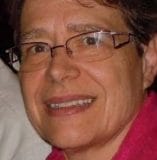
Oct 31, 2016 | Focolare Worldwide, Senza categoria

Chantal Grevin

Oct 30, 2016 | Focolare Worldwide, Senza categoria
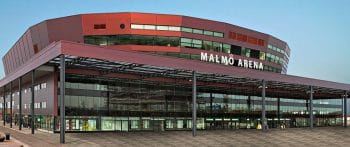 For the first time in 500 years Pope Francis, Bishop Munib Younana and General Secretary of the Lutheran World Federation, Rev Dr Martin Junge, will sign their names to the invitation for the 500th Anniversary of the Lutheran Reform in a highly significant gesture. Equally significant is the title that was chosen for the event: “From Conflict to Communion – Unity in Hope”. The event will be held on October 31st with an ecumenical service at the Cathedral of Lund, followed by a public ceremony at Malmö Stadium in Sweden. The Joint Declaration on the Doctrine of Justification (1999) was already a milestone for Catholic-Lutheran ecumenical dialogue, an important historical document that this year will serve as the theological basis the search of unity in the one Church of Christ. There has been a long history of friendship between the Focolare Movement and Lutherans. It was precisely the encounter with them that made Chiara Lubich realize that the spirituality that God had entrusted to her was not meant only for Roman Catholics.
For the first time in 500 years Pope Francis, Bishop Munib Younana and General Secretary of the Lutheran World Federation, Rev Dr Martin Junge, will sign their names to the invitation for the 500th Anniversary of the Lutheran Reform in a highly significant gesture. Equally significant is the title that was chosen for the event: “From Conflict to Communion – Unity in Hope”. The event will be held on October 31st with an ecumenical service at the Cathedral of Lund, followed by a public ceremony at Malmö Stadium in Sweden. The Joint Declaration on the Doctrine of Justification (1999) was already a milestone for Catholic-Lutheran ecumenical dialogue, an important historical document that this year will serve as the theological basis the search of unity in the one Church of Christ. There has been a long history of friendship between the Focolare Movement and Lutherans. It was precisely the encounter with them that made Chiara Lubich realize that the spirituality that God had entrusted to her was not meant only for Roman Catholics.  The history: On January 14, 1961, Chiara Lubich had been invited to speak about the spirituality of unity to the Lutheran Sisterhood of Mary. Among the listeners were several Lutheran pastors, including Klaus Hess and his wife Amalie, founders of the Brotherhood of the Common Life in Germany. A few months later the Hess couple visited Rome to know more about the Focolare Movement and the Catholic Church. On May 24, 1961, Chiara founded “Centro Uno” for the unity of Christians and, in June 1968 she inaugurated the Ecumenical Centre at the permanent Mariapolis in Ottmaring, Germany. Meanwhile the Focolare spirituality was being welcomed by bishops, Catholics, Evangelicals and Lutherans in East and West Germany. The spirituality of unity was also spreading in Sweden, and more than half the people at the Mariapolis were Lutherans. In 1982 bishops from different Churches began to attend the Movement’s annual gatherings for Catholic Bishops Friends of the Focolare. In 2015 there were 6 Lutheran bishops from three countries at the Focolare meeting for bishops in Constantinople. In 1988, Chiara was awarded the Augsburg Peace Prize. In 1999, she was an invited guest at the historic signing of the Joint Declaration on Justification in Augsburg. She was invited to compose a prayer that she recited at that solemn celebration. In 2003, the then Lutheran bishop of Munich, Johannes Friedrich, visited the Internationals Centre of the Focolare Movement with a delegation. Chiara spoke to them about Jesus Forsaken: “He presented himself (…) as the model to be imitated in every trial and especially in the pains of disunity; (…) [Jesus] Forsaken is also [the] light for recomposing full visible unity”[1]. In 2009, Focolare president Maria Voce was invited to the celebration of the 10th anniversary of the Joint Declaration. Since she will not be able to attend the 500th Anniversary of the Lutheran Reform, she will be represented by Friederike Koller and Ángel Bartol who are the Central Delegates of the Work of Mary.
The history: On January 14, 1961, Chiara Lubich had been invited to speak about the spirituality of unity to the Lutheran Sisterhood of Mary. Among the listeners were several Lutheran pastors, including Klaus Hess and his wife Amalie, founders of the Brotherhood of the Common Life in Germany. A few months later the Hess couple visited Rome to know more about the Focolare Movement and the Catholic Church. On May 24, 1961, Chiara founded “Centro Uno” for the unity of Christians and, in June 1968 she inaugurated the Ecumenical Centre at the permanent Mariapolis in Ottmaring, Germany. Meanwhile the Focolare spirituality was being welcomed by bishops, Catholics, Evangelicals and Lutherans in East and West Germany. The spirituality of unity was also spreading in Sweden, and more than half the people at the Mariapolis were Lutherans. In 1982 bishops from different Churches began to attend the Movement’s annual gatherings for Catholic Bishops Friends of the Focolare. In 2015 there were 6 Lutheran bishops from three countries at the Focolare meeting for bishops in Constantinople. In 1988, Chiara was awarded the Augsburg Peace Prize. In 1999, she was an invited guest at the historic signing of the Joint Declaration on Justification in Augsburg. She was invited to compose a prayer that she recited at that solemn celebration. In 2003, the then Lutheran bishop of Munich, Johannes Friedrich, visited the Internationals Centre of the Focolare Movement with a delegation. Chiara spoke to them about Jesus Forsaken: “He presented himself (…) as the model to be imitated in every trial and especially in the pains of disunity; (…) [Jesus] Forsaken is also [the] light for recomposing full visible unity”[1]. In 2009, Focolare president Maria Voce was invited to the celebration of the 10th anniversary of the Joint Declaration. Since she will not be able to attend the 500th Anniversary of the Lutheran Reform, she will be represented by Friederike Koller and Ángel Bartol who are the Central Delegates of the Work of Mary.
See: Statement issued from the 35th Ecumenical Meeting of Bishops friends of the Focolare Movement.
[1] Città Nuova 2003, 10, p 35
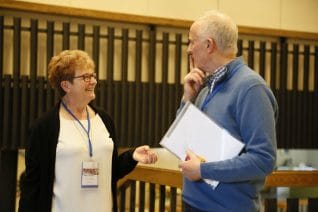
Oct 29, 2016 | Focolare Worldwide
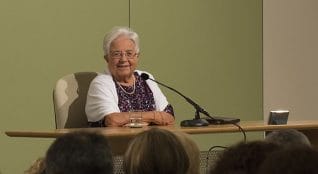 It was the first time that this international meeting was held in three installments for: the Americas and Oceania; Asia, Africa and the Middle East; and Europe. The gatherings were held one after the other and were attended by the delegates of the zone, people who are following than one nation or territory and some councilors. Some 90 people attended each gathering, men and women representing numerous communities that are working at promoting the spirit of unity around the world. They were welcomed by Focolare president Maria Voce who expressed gratitude to God for this harvest event and the life that has been generated by the charism of Chiara Lubich. She also introduced the spiritual theme for the year ahead: the mystery of Jesus Forsaken as the Key to Unity. “Jesus came to the earth,” she recalled, “to take on all the sufferings of humanity and to ensure that with Him it would be possible to pass from Cross to Resurrection.”
It was the first time that this international meeting was held in three installments for: the Americas and Oceania; Asia, Africa and the Middle East; and Europe. The gatherings were held one after the other and were attended by the delegates of the zone, people who are following than one nation or territory and some councilors. Some 90 people attended each gathering, men and women representing numerous communities that are working at promoting the spirit of unity around the world. They were welcomed by Focolare president Maria Voce who expressed gratitude to God for this harvest event and the life that has been generated by the charism of Chiara Lubich. She also introduced the spiritual theme for the year ahead: the mystery of Jesus Forsaken as the Key to Unity. “Jesus came to the earth,” she recalled, “to take on all the sufferings of humanity and to ensure that with Him it would be possible to pass from Cross to Resurrection.” 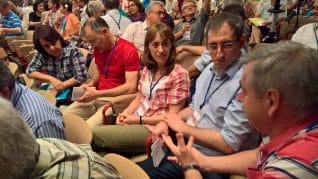 There was much sharing during the three days of intense work. It began with a discussion on the needs of young people in today’s world in the Americas and Oceania with its social and technological development but left with many spiritual needs. Other regions seemed to be in need of strategies for nurturing true values. “But it was not a matter of figuring things out sitting around a conference table,” Ray Asprer explained, “but of developing an awareness that the Holy Spirit will suggest what today’s society needs to get from the charism of unity.” “In Oceania,” Vania Cheng added, “we need to get closer to the Aboriginal populations and face up to the challenge of secularization. From there we can move on to bravely sowing the seeds of the Gospel that spread on their own.” “Even though there are many challenges,” said Gabriela Melo from Latin America, “our communities live communion and reciprocity. And this grows the faith that a united world is not a utopia.”
There was much sharing during the three days of intense work. It began with a discussion on the needs of young people in today’s world in the Americas and Oceania with its social and technological development but left with many spiritual needs. Other regions seemed to be in need of strategies for nurturing true values. “But it was not a matter of figuring things out sitting around a conference table,” Ray Asprer explained, “but of developing an awareness that the Holy Spirit will suggest what today’s society needs to get from the charism of unity.” “In Oceania,” Vania Cheng added, “we need to get closer to the Aboriginal populations and face up to the challenge of secularization. From there we can move on to bravely sowing the seeds of the Gospel that spread on their own.” “Even though there are many challenges,” said Gabriela Melo from Latin America, “our communities live communion and reciprocity. And this grows the faith that a united world is not a utopia.” 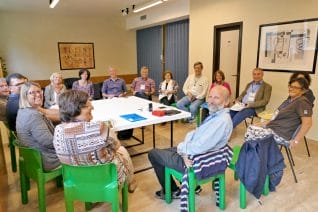 The gathering among the three major regions of Africa, Asia and the Middle East was quite significant, each with its own particular problems, especially the Middle East where they are going through a drama that seems to have no answers. Precisely in the region where Jesus lived and died, it is necessary to not only support the people, but also defend the “culture of the Resurrection.” “Regarding Africa,” Joseph Assouad remarked, “the great value of inculturation was highlighted. These peoples have long been on the journey towards Truth, and we must not go there thinking that we are starting from zero!” Roberto Catalano spoke about the Asian continent, saying that it had much to offer the world regarding social and political life. He also underscored the importance of interreligious dialogue in the Asian region and the contribution offered by the Focolare School of the Great Religions in Philippines.
The gathering among the three major regions of Africa, Asia and the Middle East was quite significant, each with its own particular problems, especially the Middle East where they are going through a drama that seems to have no answers. Precisely in the region where Jesus lived and died, it is necessary to not only support the people, but also defend the “culture of the Resurrection.” “Regarding Africa,” Joseph Assouad remarked, “the great value of inculturation was highlighted. These peoples have long been on the journey towards Truth, and we must not go there thinking that we are starting from zero!” Roberto Catalano spoke about the Asian continent, saying that it had much to offer the world regarding social and political life. He also underscored the importance of interreligious dialogue in the Asian region and the contribution offered by the Focolare School of the Great Religions in Philippines.  Finally, there was Europe, from Siberia to Portugal. The world is waiting for unity from this continent, human and spiritual values, an ability to dialogue especially with Islam which is coming more and more into view in so many regions. Severin Schmit stated: “Above all, the world is waiting for Europe to find a dignified solution for the refugees.” The challenges are many: secularization, Relativism and the new generations. They deserve answers and proposals that are the result of communion amongst the geographic regions of the continent. “These problems,” Margherita Karram said, “have stimulated growth, motivation and greater creativity, building a network among many people in Italy, for example, where they have taken action in welcoming.” Many new insights and answers emerged from the meetings and much motivation. Everyone left certain of the need to trust and be open to others as Pope Francis suggests, because this will open new and unimagined paths. Focolare co-president, Jesús Morán, recalled: “Jesus told Mary Magdalene to go and inform her brothers and sisters that He would go before them to Galilee. What is Galilee? Galilee is the world outside the Holy City, outside the walls of Jerusalem, outside the walls where Jesus died. It’s the world. Jesus goes before us there, he speaks to us there – in the world.”
Finally, there was Europe, from Siberia to Portugal. The world is waiting for unity from this continent, human and spiritual values, an ability to dialogue especially with Islam which is coming more and more into view in so many regions. Severin Schmit stated: “Above all, the world is waiting for Europe to find a dignified solution for the refugees.” The challenges are many: secularization, Relativism and the new generations. They deserve answers and proposals that are the result of communion amongst the geographic regions of the continent. “These problems,” Margherita Karram said, “have stimulated growth, motivation and greater creativity, building a network among many people in Italy, for example, where they have taken action in welcoming.” Many new insights and answers emerged from the meetings and much motivation. Everyone left certain of the need to trust and be open to others as Pope Francis suggests, because this will open new and unimagined paths. Focolare co-president, Jesús Morán, recalled: “Jesus told Mary Magdalene to go and inform her brothers and sisters that He would go before them to Galilee. What is Galilee? Galilee is the world outside the Holy City, outside the walls of Jerusalem, outside the walls where Jesus died. It’s the world. Jesus goes before us there, he speaks to us there – in the world.”
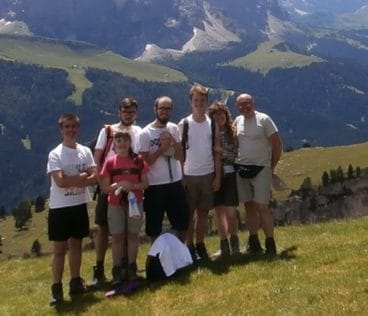
Oct 27, 2016 | Focolare Worldwide
 “We have always wished to have a larger family”, Corrado and Elisabetta Ferri told us. But when one has five kids, aged 10 to 21, enlarging the family takes on a different meaning: it implies opening one’s heart to the problems of the world, and certainly with a bit of sacrifice. Corrado and Elisabetta have been married for 24 years, and in seeing their children grow in an atmosphere of love which only the family can give, wanted to help those who have never experienced that love. “That’s why,” they said, “the minute our economic conditions allowed it, we signed up for one of the ‘Adoptions at a Distance’ projects of the New Families Association and welcomed Athiphong, a Thai child.” After about 20 years of support and intense correspondence, Athiphong, now an adult, has found a job and thanks to the studies achieved, can now support his new family and also the original one. “One year we managed to round off the sum we sent to support him, which was not much in reality. But it was moving to learn that the small extra sum allowed Athipong’s family to have the interior of their modest home cemented, to the admiration and pleasure also of their neighbours.” Now that Athiphong is independent, the Ferri family has decided to support a Thai girl. Having lived this experience and being raised in an ambience where solidarity and sharing is concrete, the children of Corrado and Elisabetta decided to put together all their savings obtained from festivities and birthdays of each one, and assign them to a new support project. This led to the arrival of Maleta, a splendid Congolese child. “What a surprise and how much amusement when some Christmases ago, we received the usual letter with photo, in which Maleta, together with a nice group of peers, showed off the T-shirt of the Italian Soccer team of which our family is a fan.” So all distances are bridged by family bonds and all share vicissitudes, even the painful ones of Maleta who transferred to another city with an aunt, accompanied by the remembrance and prayers of his parents, brothers and sisters far away. “Now our children are supporting little Nzata together.” To continue this extraordinary chain of solidarity is the second-born, Edoardo. After graduating with maximum grades, he participated in a contest. He won the first prize which was quite a big amount: “All of us in the family,” recounted Corrado and Elisabetta, “were so proud of him and the excellent results obtained with great effort, that we insisted he put aside the sum for himself since he deserved it. But without thinking twice, some days later and to our surprise, he told us that he would willingly assign the sum to a child of his own, as a new support for a distance project. And so our family welcomed a little girl from Jordan.” And they concluded with conviction: «We believe that this open heart did us and our children a lot of good, and that love when given always returns with generosity.»
“We have always wished to have a larger family”, Corrado and Elisabetta Ferri told us. But when one has five kids, aged 10 to 21, enlarging the family takes on a different meaning: it implies opening one’s heart to the problems of the world, and certainly with a bit of sacrifice. Corrado and Elisabetta have been married for 24 years, and in seeing their children grow in an atmosphere of love which only the family can give, wanted to help those who have never experienced that love. “That’s why,” they said, “the minute our economic conditions allowed it, we signed up for one of the ‘Adoptions at a Distance’ projects of the New Families Association and welcomed Athiphong, a Thai child.” After about 20 years of support and intense correspondence, Athiphong, now an adult, has found a job and thanks to the studies achieved, can now support his new family and also the original one. “One year we managed to round off the sum we sent to support him, which was not much in reality. But it was moving to learn that the small extra sum allowed Athipong’s family to have the interior of their modest home cemented, to the admiration and pleasure also of their neighbours.” Now that Athiphong is independent, the Ferri family has decided to support a Thai girl. Having lived this experience and being raised in an ambience where solidarity and sharing is concrete, the children of Corrado and Elisabetta decided to put together all their savings obtained from festivities and birthdays of each one, and assign them to a new support project. This led to the arrival of Maleta, a splendid Congolese child. “What a surprise and how much amusement when some Christmases ago, we received the usual letter with photo, in which Maleta, together with a nice group of peers, showed off the T-shirt of the Italian Soccer team of which our family is a fan.” So all distances are bridged by family bonds and all share vicissitudes, even the painful ones of Maleta who transferred to another city with an aunt, accompanied by the remembrance and prayers of his parents, brothers and sisters far away. “Now our children are supporting little Nzata together.” To continue this extraordinary chain of solidarity is the second-born, Edoardo. After graduating with maximum grades, he participated in a contest. He won the first prize which was quite a big amount: “All of us in the family,” recounted Corrado and Elisabetta, “were so proud of him and the excellent results obtained with great effort, that we insisted he put aside the sum for himself since he deserved it. But without thinking twice, some days later and to our surprise, he told us that he would willingly assign the sum to a child of his own, as a new support for a distance project. And so our family welcomed a little girl from Jordan.” And they concluded with conviction: «We believe that this open heart did us and our children a lot of good, and that love when given always returns with generosity.»
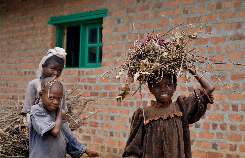
Oct 26, 2016 | Focolare Worldwide, Senza categoria
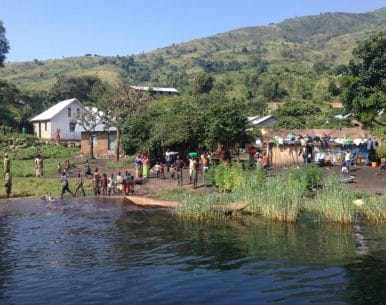 In school, the boys and girls use tree trunks as chairs and use their laps as desks. This all happens on the Isle of Idjwi in the middle of Lake Kivu, on the eastern side of the Democratic Republic of Congo. Because of its secluded location, it has been used as a platform for the secret movements of various military troops in the recent conflicts that have affected the country. On the island, many services are lacking such as the supply of electricity and transport. The population moves from the island to the mainland mainly by pirogue which, because of its instability, causes many deaths by sinking or drowning, leading to an extremely high mortality rate. The data gathered shows that in a family of five there is at least one widow or an orphan. The island’s economy is based on farming and fishing. In particular, beans, cassava, peanuts, soy beans and coffee are cultivated. There is also a consistent breeding of chickens, goats, turkeys and pigs. In the last years, however, agricultural production has diminished, among the many reasons for which was the deterioration of soil quality, poor training of farmers, and the absence of seeds and varieties that are more resistant to diseases. Given the economic situation, many young people on the island do not have jobs and career prospects.
In school, the boys and girls use tree trunks as chairs and use their laps as desks. This all happens on the Isle of Idjwi in the middle of Lake Kivu, on the eastern side of the Democratic Republic of Congo. Because of its secluded location, it has been used as a platform for the secret movements of various military troops in the recent conflicts that have affected the country. On the island, many services are lacking such as the supply of electricity and transport. The population moves from the island to the mainland mainly by pirogue which, because of its instability, causes many deaths by sinking or drowning, leading to an extremely high mortality rate. The data gathered shows that in a family of five there is at least one widow or an orphan. The island’s economy is based on farming and fishing. In particular, beans, cassava, peanuts, soy beans and coffee are cultivated. There is also a consistent breeding of chickens, goats, turkeys and pigs. In the last years, however, agricultural production has diminished, among the many reasons for which was the deterioration of soil quality, poor training of farmers, and the absence of seeds and varieties that are more resistant to diseases. Given the economic situation, many young people on the island do not have jobs and career prospects.  The four parishes there try to respond to the needs of the local population. Specifically the Bumpeta parish in the northern part of the island that counts about 76,000 inhabitants has been very active in running the primary and secondary schools, and for this has received an award from the Congolese state. Because of the population’s active participation in promoting the schooling of the island’s children and youths, AMU has initiated a project that focuses with conviction on the future of the country, and aims to support the parish of Bumpeta by furnishing the equipment of the Cikoma Institute. It is a high school specialized in pedagogical and social sciences that train the future teachers of the island. It is thus a school that looks to the future but that has to tackle the current backward conditions, and a population that is struggling to rise above poverty. The school is attended by about 900 boys and girls, divided into 14 classes. In some there are makeshift desks, in others practically everything is lacking. The project will chiefly equip the school with the 308 missing desks. Currently many students still use tree trunks as chairs and their knees as desks with the consequence of a serious deterioration in their posture. The desks will be built by a Congolese carpentry shop and in this way the project will help support the local production activities. The population of Bumpeta takes active part in carrying out the project and will primarily take charge of transporting the desks on the Island. Source: AMU online
The four parishes there try to respond to the needs of the local population. Specifically the Bumpeta parish in the northern part of the island that counts about 76,000 inhabitants has been very active in running the primary and secondary schools, and for this has received an award from the Congolese state. Because of the population’s active participation in promoting the schooling of the island’s children and youths, AMU has initiated a project that focuses with conviction on the future of the country, and aims to support the parish of Bumpeta by furnishing the equipment of the Cikoma Institute. It is a high school specialized in pedagogical and social sciences that train the future teachers of the island. It is thus a school that looks to the future but that has to tackle the current backward conditions, and a population that is struggling to rise above poverty. The school is attended by about 900 boys and girls, divided into 14 classes. In some there are makeshift desks, in others practically everything is lacking. The project will chiefly equip the school with the 308 missing desks. Currently many students still use tree trunks as chairs and their knees as desks with the consequence of a serious deterioration in their posture. The desks will be built by a Congolese carpentry shop and in this way the project will help support the local production activities. The population of Bumpeta takes active part in carrying out the project and will primarily take charge of transporting the desks on the Island. Source: AMU online

 Hungary had been invaded by Soviet troops following the 1956 uprising. In response to the appeal of Pope Pius XII, Chiara Lubich wrote a letter that became the Magna Carta of a new calling in the Focolare Movement: the Volunteers of God, men and women who live the spirituality of unity and are especially committed to bringing the presence of God into society. Last October, a total of 1,840 participants from the wale of Italy, came together in Castel Gandolfo, Rome. “There’s a lot of desire to step up for our country, to overcome the fragmentation and to create a network of best practices that can provide mutual support. Now, it’s more necessary than ever before to give an intergenerational concrete response to the challenges of those that suffer in society.” This was the comment of one of the young participants that summarizes the three days of intense work. Focolare Movement president, Maria Voce, sent a message at the opening of the meeting in which she encouraged them to bear witness to the charism of unity in its more concrete expressions, keeping their gaze fixed on Jesus’s prayer “that all may be one” (Jn 17:21). The meeting continued with a series of reflections and testimonies on the central theme for the entire Movement this year: “Jesus Forsaken:
Hungary had been invaded by Soviet troops following the 1956 uprising. In response to the appeal of Pope Pius XII, Chiara Lubich wrote a letter that became the Magna Carta of a new calling in the Focolare Movement: the Volunteers of God, men and women who live the spirituality of unity and are especially committed to bringing the presence of God into society. Last October, a total of 1,840 participants from the wale of Italy, came together in Castel Gandolfo, Rome. “There’s a lot of desire to step up for our country, to overcome the fragmentation and to create a network of best practices that can provide mutual support. Now, it’s more necessary than ever before to give an intergenerational concrete response to the challenges of those that suffer in society.” This was the comment of one of the young participants that summarizes the three days of intense work. Focolare Movement president, Maria Voce, sent a message at the opening of the meeting in which she encouraged them to bear witness to the charism of unity in its more concrete expressions, keeping their gaze fixed on Jesus’s prayer “that all may be one” (Jn 17:21). The meeting continued with a series of reflections and testimonies on the central theme for the entire Movement this year: “Jesus Forsaken:  God’s aperture on the world, and the world’s aperture on God.” The testimonies were very moving. The voices of Pina and Tanina trembled as they told about their daily acts of heroism welcoming the thousands of refugees that have disembarked at the small island of Lampedusa in recent years: “We feel that these African brothers and sisters are our own until the time comes when we have to let them go. When they leave and disperse to many parts of the world we’re filled with emotions and concern for what still awaits them.” Journalist Riccardo Balaarm told how the painful experience of his disabled son led to a commitment among the National Paralympic Swimmers to promote the testimony of free swimmer and silver medallist Arjola Trimi from Rio, Brazil.
God’s aperture on the world, and the world’s aperture on God.” The testimonies were very moving. The voices of Pina and Tanina trembled as they told about their daily acts of heroism welcoming the thousands of refugees that have disembarked at the small island of Lampedusa in recent years: “We feel that these African brothers and sisters are our own until the time comes when we have to let them go. When they leave and disperse to many parts of the world we’re filled with emotions and concern for what still awaits them.” Journalist Riccardo Balaarm told how the painful experience of his disabled son led to a commitment among the National Paralympic Swimmers to promote the testimony of free swimmer and silver medallist Arjola Trimi from Rio, Brazil.  In the afternoons 150 groups discussed 35 topics: formation, social and political involvement; economy, health and ecology; art etc. These are all things that the Volunteers are called to deal with in their daily lives, through which they strive to fulfil their vocation as “first Christians of the twentieth century” as Chiara Lubich liked to call them: lay men and women that live the Gospel with the same fervour of the first Christians, committed to spending their lives for the building of a united world (Jn 17:21). A solemn moment was the signing of the act of initialization of the promotion of the Canonization Process for Volunteer Domenico Mangano from Viterbo, in the presence of Fr Andrea De Matteis, Vicar and Chancellor of the Diocese of Albano. https://youtu.be/EDCfdVUGa6s
In the afternoons 150 groups discussed 35 topics: formation, social and political involvement; economy, health and ecology; art etc. These are all things that the Volunteers are called to deal with in their daily lives, through which they strive to fulfil their vocation as “first Christians of the twentieth century” as Chiara Lubich liked to call them: lay men and women that live the Gospel with the same fervour of the first Christians, committed to spending their lives for the building of a united world (Jn 17:21). A solemn moment was the signing of the act of initialization of the promotion of the Canonization Process for Volunteer Domenico Mangano from Viterbo, in the presence of Fr Andrea De Matteis, Vicar and Chancellor of the Diocese of Albano. https://youtu.be/EDCfdVUGa6s


 For the first time in 500 years Pope Francis, Bishop Munib Younana and General Secretary of the Lutheran World Federation, Rev Dr Martin Junge, will sign their names to the invitation for the 500th Anniversary of the Lutheran Reform in a highly significant gesture. Equally significant is the title that was chosen for the event: “From Conflict to Communion – Unity in Hope”. The event will be held on October 31st with an ecumenical service at the Cathedral of Lund, followed by a public ceremony at Malmö Stadium in
For the first time in 500 years Pope Francis, Bishop Munib Younana and General Secretary of the Lutheran World Federation, Rev Dr Martin Junge, will sign their names to the invitation for the 500th Anniversary of the Lutheran Reform in a highly significant gesture. Equally significant is the title that was chosen for the event: “From Conflict to Communion – Unity in Hope”. The event will be held on October 31st with an ecumenical service at the Cathedral of Lund, followed by a public ceremony at Malmö Stadium in 
 It was the first time that this international meeting was held in three installments for: the Americas and Oceania; Asia, Africa and the Middle East; and Europe. The gatherings were held one after the other and were attended by the delegates of the zone, people who are following than one nation or territory and some councilors. Some 90 people attended each gathering, men and women representing numerous communities that are working at promoting the spirit of unity around the world. They were welcomed by Focolare president
It was the first time that this international meeting was held in three installments for: the Americas and Oceania; Asia, Africa and the Middle East; and Europe. The gatherings were held one after the other and were attended by the delegates of the zone, people who are following than one nation or territory and some councilors. Some 90 people attended each gathering, men and women representing numerous communities that are working at promoting the spirit of unity around the world. They were welcomed by Focolare president  There was much sharing during the three days of intense work. It began with a discussion on the needs of young people in today’s world in the Americas and Oceania with its social and technological development but left with many spiritual needs. Other regions seemed to be in need of strategies for nurturing true values. “But it was not a matter of figuring things out sitting around a conference table,” Ray Asprer explained, “but of developing an awareness that the Holy Spirit will suggest what today’s society needs to get from the charism of unity.” “In Oceania,” Vania Cheng added, “we need to get closer to the Aboriginal populations and face up to the challenge of secularization. From there we can move on to bravely sowing the seeds of the Gospel that spread on their own.” “Even though there are many challenges,” said Gabriela Melo from Latin America, “our communities live communion and reciprocity. And this grows the faith that a united world is not a utopia.”
There was much sharing during the three days of intense work. It began with a discussion on the needs of young people in today’s world in the Americas and Oceania with its social and technological development but left with many spiritual needs. Other regions seemed to be in need of strategies for nurturing true values. “But it was not a matter of figuring things out sitting around a conference table,” Ray Asprer explained, “but of developing an awareness that the Holy Spirit will suggest what today’s society needs to get from the charism of unity.” “In Oceania,” Vania Cheng added, “we need to get closer to the Aboriginal populations and face up to the challenge of secularization. From there we can move on to bravely sowing the seeds of the Gospel that spread on their own.” “Even though there are many challenges,” said Gabriela Melo from Latin America, “our communities live communion and reciprocity. And this grows the faith that a united world is not a utopia.” 


 In school, the boys and girls use tree trunks as chairs and use their laps as desks. This all happens on the Isle of Idjwi in the middle of Lake Kivu, on the eastern side of the
In school, the boys and girls use tree trunks as chairs and use their laps as desks. This all happens on the Isle of Idjwi in the middle of Lake Kivu, on the eastern side of the